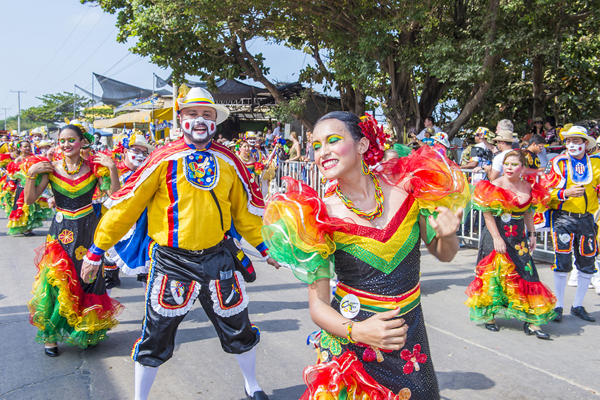Public Transportation in Barranquilla
Summary: Mastering the public transportation system in Barranquilla is a crucial aspect of adapting to life there. This article provides a detailed overview of the available local transit options.

Barranquilla, a vibrant city on the Caribbean coast, offers a variety of public transportation options for both locals and expats. The city's public transportation system includes the Transmetro, a bus rapid transit system, traditional buses, and taxis. With these options, it's entirely possible for an expat to live comfortably in Barranquilla without a car, relying on public transportation and walking. However, the choice to use public transportation or own a car depends on personal preferences and lifestyle.
Transmetro
The Transmetro is Barranquilla's primary public transportation system. It's a bus rapid transit system that operates on dedicated bus lanes, providing a fast and efficient way to travel around the city. The Transmetro is safe to use at any time of the day, and it's a popular choice for women traveling alone and children going to school. The cost of a single journey is approximately 2,400 Colombian pesos, which is about 0.65 USD. The Transmetro covers a wide range of routes, connecting various parts of the city and even extending to the neighboring municipality of Soledad. The system is well-maintained and reliable, making it a great option for daily commuting.
Buses
Traditional buses are another common mode of transportation in Barranquilla. These buses are smaller and slower than the Transmetro, but they cover more routes and can reach areas that the Transmetro doesn't. The buses are safe to use, but they can get crowded during peak hours. The fare is slightly cheaper than the Transmetro, costing around 2,000 Colombian pesos per journey. While the buses don't operate on a fixed schedule, they are frequent, and you usually won't have to wait long for one to arrive.
Taxis
Taxis are a convenient and comfortable way to get around Barranquilla. They are readily available throughout the city, and you can either hail one on the street or book one through a taxi app. Taxis in Barranquilla are metered, and the fare starts at 5,400 Colombian pesos, with an additional 100 pesos added for every 100 meters traveled or 60 seconds of waiting time. Taxis are safe to use, and they are a good option if you're traveling with luggage or if you're going to a place that's not easily accessible by bus or Transmetro.
Walking
Walking is a viable option for getting around in Barranquilla, especially if you live and work in the city center. The city is relatively flat, making it easy to walk, and there are plenty of sidewalks and pedestrian-friendly areas. However, the tropical climate can make walking uncomfortable during the hot and humid midday hours. It's also worth noting that traffic can be chaotic, and pedestrians should always be cautious when crossing the street.
In conclusion, Barranquilla's public transportation system is comprehensive and reliable, making it possible for expats to live in the city without a car. However, owning a car can provide more flexibility and convenience, especially for those who need to travel frequently or who live in areas that are not well-served by public transportation. Ultimately, the choice between using public transportation and owning a car depends on individual needs and preferences.
About the Author
 Joshua Wood, LPC joined Expat Exchange in 2000 and serves as one of its Co-Presidents. He is also one of the Founders of Digital Nomad Exchange. Prior to Expat Exchange, Joshua worked for NBC Cable (MSNBC and CNBC
Primetime). Joshua has a BA from Syracuse and a Master's in Clinical and Counseling Psychology from Fairleigh Dickinson University. Mr. Wood is also a licensed counselor and psychotherapist.
Joshua Wood, LPC joined Expat Exchange in 2000 and serves as one of its Co-Presidents. He is also one of the Founders of Digital Nomad Exchange. Prior to Expat Exchange, Joshua worked for NBC Cable (MSNBC and CNBC
Primetime). Joshua has a BA from Syracuse and a Master's in Clinical and Counseling Psychology from Fairleigh Dickinson University. Mr. Wood is also a licensed counselor and psychotherapist.
Some of Joshua's articles include Pros and Cons of Living in Portugal, 10 Best Places to Live in Ireland and Pros and Cons of Living in Uruguay. Connect with Joshua on LinkedIn.
Additional Information:
- Best Bookstores and Libraries in Barranquilla
- Public Transportation in Barranquilla
- Best Markets in Barranquilla
- Retire in Barranquilla Guide
- 7 Tips for Living in Barranquilla
- Pros & Cons of Living in Barranquilla
- Tips for Expats Driving in Barranquilla
- Discover the Best of Barranquilla
- Health Care in Barranquilla
- Cost of Living in Barranquilla
- Healthcare & Health Insurance in Colombia
- Best Places to Live in Colombia
- Real Estate in Colombia
- Dengue Virus in Colombia
- Pros and Cons of Living in Colombia 2025
- 2025 Guide to Moving to Colombia




